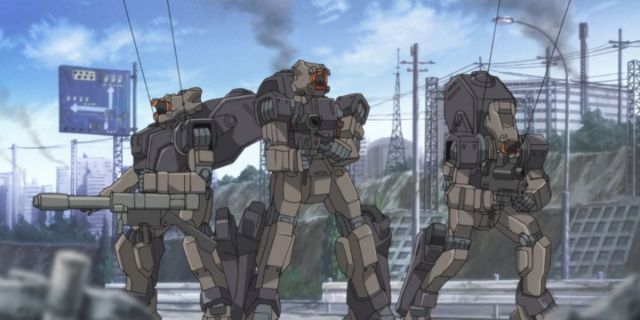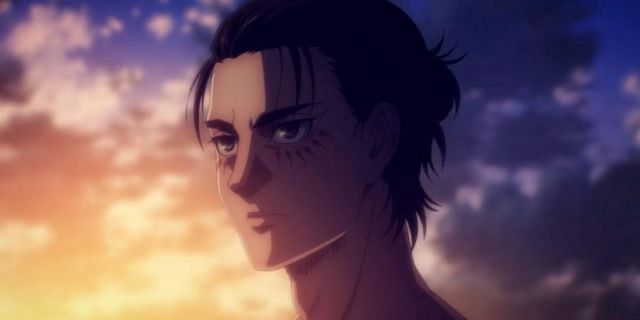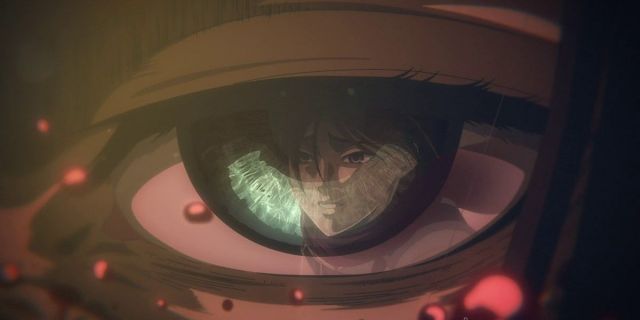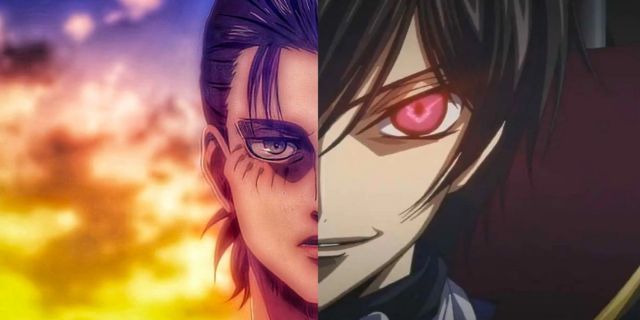Highlights
- Attack on Titan’s final episode draws parallels to Code Geass in terms of conflict and protagonists’ motivations for overthrowing oppressive regimes.
- Eren and Lelouch share a similar path as necessary villains who orchestrate their own demises to ensure the survival of their loved ones.
- Both series end with the best friend-turned-hero taking down the primary antagonist, showcasing a bittersweet resolution for the characters.
In late 2023, the final part of the Attack on Titan anime was released, concluding a journey over ten years in the making. With the story’s conclusion, there was naturally a huge void felt by fans of the series, while others were caught in the desire to fully interpret any and all of the various decoded messages and hidden details presented by the final episode.
A large section of fans saw a major similarity between the ending of Attack on Titan and that of an older title: Code Geass. Presenting two protagonists who become the primary antagonist of their respective story, the comparison might bear some weight, but why exactly do people say “Attack on Titan got the Code Geass ending”?
Similar Conditions Of Conflict
Comparing Marley and Britannia

The main reason for any comparisons between Code Geass lies in its main characters, as well as the primary conflict taking place in either series. While Attack on Titan takes three seasons to build up the underlying political issue, Code Geass’s entire premise is built on the world as it looks after the Britannian Empire became one of four major superpowers through the monopolization of the development of giant robots known as Knightmare Frames. Britannia would go on to colonize a large portion of the world, redesignating formerly sovereign states with the word “Area” followed by a number. Japan was colonized, redesigned Area 11, and the Japanese citizens relocated to ghettos while Britannians took the majority of the land. While Attack on Titan eventually presents Marley as a state within the story that is developed as a colonizer and war-hungry influence in the world, its presence is barely explored prior to the revelations of the second season, where it is learned that there’s a world beyond the walls.
In some fashion, the marginalization of the Eldians and their permanent imprisonment on Paradis Island is comparable to the annexation of Japan by Britannia, but this similarity also includes the enlistment of Japanese citizens into the military strength of Britannia as seen with Lelouch’s best friend, Suzuku Kururugi, and with his eventual subordinate, Kallen Stadfeld. In Attack on Titan, the power of the Knightmare Frames is paralleled by the possession of the Titan ennead, and through constant preparation and training of the next in line to inherit a specific Titan, Marley is able to maintain control over the power that they took for themselves over centuries of Eldian domination and oppression, with Eldians being enlisted to the Marleyan military in order to gain some level of respect as honorary Marleyans or veterans.
Eren and Lelouch Are Cut From the Same Cloth
Birth of a Necessary Villain

In both instances, the protagonist inadvertently comes into contact with an incredible power of some kind that makes them the central cog in the eventual overthrowing of an oppressive regime of some kind. In both Code Geass and Attack on Titan, the protagonist is inspired largely by personal grudges they possess against the regime in question. Lelouch, the 11th Prince of the Holy Britannian Empire, hates the empire because the usual conflicts for rights to the throne took place, leading to the assassination of his mother and the permanent blinding and injury of his little sister Nunnally.
At first, Eren’s motivation was to eliminate the Titans because of how powerless he was against them when the walls were first breached, and they were forced to abandon her; however, we learn over the course of the series what the Titans are, and who the true enemy is from his perspective.
With more insight into the world’s history, Eren winds up becoming the series antagonist as he put into motion a sequence of events that lead to the cataclysmic Rumbling; a last-ditch effort by Eren, who’d gained the power of the Founding Titan, to lay waste to all who have and may still pose a threat to the people of Paradis Island. The supernatural ability known as “Geass” is known as “the power of kings”, manifesting differently depending on the personality and desires of the inheritor, and in the case of Lelouch, his own father, King Charles zi Britannia was also in possession of his own Geass, which is similar in concept to how Eren’s father possessed the Attack Titan before he did.
The final episode of Attack on Titan exhibits a similar property of pluripotency as Geass when it comes to the kinds of abilities that are available to each successive inheritor of a specific Titan. In the cases of both Lelouch and Eren, their desire to protect those close to them and defend them against a global superpower ends up causing them to assume villainous roles based on their belief in the necessity of their actions.
The Best Friend-Turned Hero
How Eren and Lelouch Set Up Their Own Deaths

The biggest similarity in the endings of both Attack on Titan and Code Geass is how the protagonist who mastered his power used their intelligence to orchestrate a scenario in which they can be seen as the overarching villain in the context of their respective universes. For Lelouch, methodically manipulating Japanese freedom fighters as well as Britannian agents enabled him to remove a number of opponents from the game, but at the heart of both characters, the desire to protect loved ones informs their decisions. Lelouch uses his Geass, which grants him the ability to issue a single absolute order to a person or group, to ensure the ultimate survival of his childhood friend Suzaku Kururugi by any means necessary, an order which got him out of a multitude of tough situations and made it possible for Suzaku to eventually become the hero who kills the tyrannical Britannian Emperor, Lelouch vi Britannia, doing so dressed as Zero; the alter ego created by Lelouch to play the founder of the Order of the Black Knights, a group of rebels committed to fighting against the Britannian Empire.
In Attack on Titan, Eren’s knowledge of the horrible future enabled him to enact his plan to eradicate his enemies, knowing that his closest friends and allies would certainly band together to take him down despite being Eldians from Paradis themselves. With Armin, Mikasa and the others becoming the heroes after defeating Eren, he can ensure the continued survival of Paradis Island. In both cases, the protagonist orchestrates their own demise as the bona fide primary antagonist of the story and the world at large, appointing a hero who will save the world who also happens to have been a close, childhood friend. Ultimately, the Attack on Titan and Code Geass ending comparison is justified given that the characters performed similar functions in their stories with similar motivations, and ultimately saw the fittest ending for their misdeeds to be death at the hands of the very people they cherished.











Leave a Reply